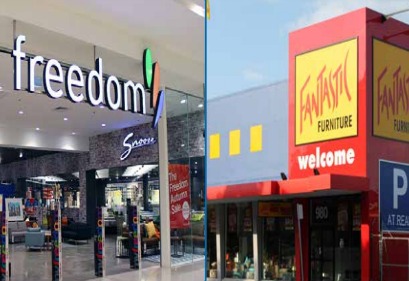While Steinhoff International has staved off a collapse of its global retail business with support from international lenders for the time being, the company remains deeply in debt and at the mercy of regulators and bankers. Its Australian arm pointed out last January that it was profitable and was not mired in the global woes of the parent company, which is listed on both the Johannesburg and Frankfurt stock exchanges. However, the wholly owned Australian subsidiary was not immune to the l
egal complexities or the financial distress of the South African parent company, since it was a prime candidate for the asset sales that international bankers were seeking to reduce the group’s unsustainable debt levels.
Michael Ford, CEO of Steinhoff Asia Pacific, in September announced a name change for the Australian subsidiary to Greenlit Brands, a move that seeks to cauterise the damage of an ongoing association with the international parent and to open up options on future ownership.
While Ford, as the crisis broke in South Africa, was assuring landlords, suppliers, staff and bankers that the Australian operations were profitable, his executive team and board were working hard to secure the company’s position.
Ford retained financial advisers to review options that would ensure an orderly and controlled ownership change rather than a forced distress sale in the event that Steinhoff International was forced by its lenders to divest the local business.
At its peak, Steinhoff International had more than 12,000 retail stores across 40 retail brands in 30 countries, as well as manufacturing plants that supplied some of its retail outlets.
In Australia, the company’s brand portfolio includes Freedom, Fantastic Furniture, Snooze, Plush, OMF, Best & Less, Harris Scarfe and Postie as well as licence rights to the British department store Debenhams.
Ford insists the business is independent, profitable and financially strong with positive cashflows, but it is understood the Best & Less
and Harris Scarf chains are struggling for growth.
The Debenhams deal for licensed merchandise in Harris Scarfe stores and a network of standalone Debenhams stores has been hampered by the problems of the parent company Those international financial problems have also impacted on the financing options Ford has had to support the Australian brands.
That situation has recently been addressed, with Greenlit Brands finalising a debt facility with the ANZ, NAB and Deutsche banks for
the next two years at what Ford describes as normal commercial terms and interest rates.
The finance package buys time, but the group remains susceptible to developments in the financial woes of Steinhoff International, which include massive largely unexplained losses and fraud.
Mindful of the ongoing threat to the local operations, Ford has had the advisory firm Rothschild reviewing proactive options that would avoid eroding the value of the businesses.
IRW understands Rothschild has canvassed a wide range of options, including a breakup of the group, which would be likely to
split the department store chains from the furniture chains.
A management buyout is understood to have been evaluated, with participation by private equity firms, as well as an outright sale.
It is understood both TPG Capital and Carlyle Group have shown interest in acquiring at least part of the Greenlit Brands businesses,
while the furniture brands have been considered by Nick Scali Ltd as a possible acquisition. Nick Scali is listed on the Australian
Stock Exchange.
There are other private equity firms in the mix but a trade sale is being weighed against a public float on the ASX, which could sever,
or at least reduce, the ties to Steinhoff International, potentially retain management shareholdings and secure working capital and
cover debt obligations.
Greenlit Brands owes the troubled parent company $333 million and is carrying bank debt of around $170 million. Ford and his management team and the local board of directors have done a remarkable job in the past 12 months to ensure the parent company’s problems did minimal damage to what is now Greenlit Brands.
Their efforts have preserved the value of the Australian operations and should ensure an ownership change will not
be traumatic or disruptive for the retail industry, landlords, suppliers and staff.

